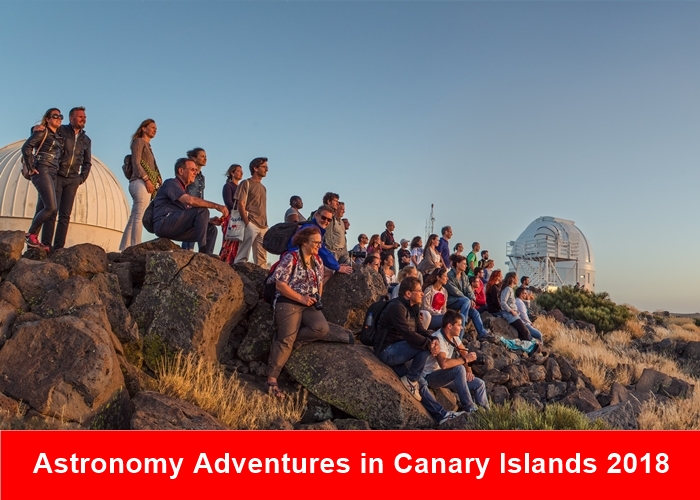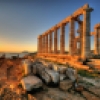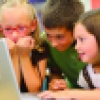.
Astronomy Adventures in Canary Islands 2018

Details
The training consists of conferences and hands-on workshops on subjects related to Astronomy, with particular emphasis on Inquiry-led teaching activities, and the use of robotic telescopes for scientific projects that can be pursued in schools. The programme includes a half day visit to Teide Observatory, where participants will visit several telescopes and experiments and will attend a night observing session. There will be an optional visit to Roque de los Muchachos Observatory (La Palma), on Saturday August 4th Astronomers will explain how the telescopes work, the technology and instruments used on them, as well as the science and educational projects that are carried out with them.
The main objective of this school, organised in the framework of the Educational Project with Robotic Telescopes (PETeR) of the Instituto de Astrofísica de Canarias, and the European projects Open Schools for Open Societies and Galileo Teacher Training Program, is to introduce teachers to the use of technology and different e-Learning resources, to help them bring science education to students in a more attractive way. The international flavor of the event also aims to offer teachers the opportunity to make links with colleagues and schools in other countries. The preliminary programme is available here.
The course fee for Erasmus+ applicants is 70€/day. The summer school fee covers:
– All materials needed for the course
– Tuition fee for lectures, seminars and workshops
The IAC has blocked 15 rooms in Hotel Laguna Nivaria with a special price for the course participants.
Headquarters of the IAC (La Laguna), Tenerife, Canary Islands, Spain
.
.
About
The European Science Education Academy (ESEA) is a common effort of the European Physical Society, Ellinogermaniki Agogi, NUCLIO, and the Cardiff University to support the modernization and continuous development of STEM (Science, Technology, Engineering and Math) education and training. ESEA provides numerous training activities, tools and resources that will enable teachers in STEM to maximize their efforts in the design of inquiry based learning activities as well as to create motivating and engaging lessons that inspire young pupils and students to take up a career in STEM.
Read more
LATEST NEWS
-
11 Dec 2017
-
26 Oct 2017


